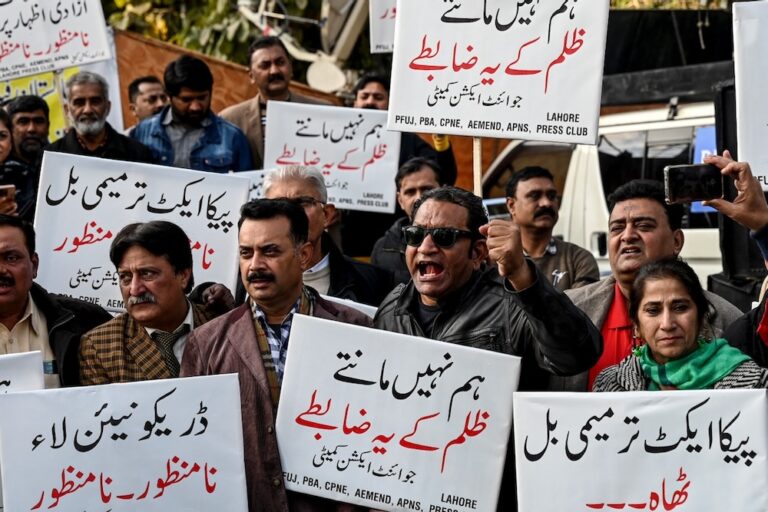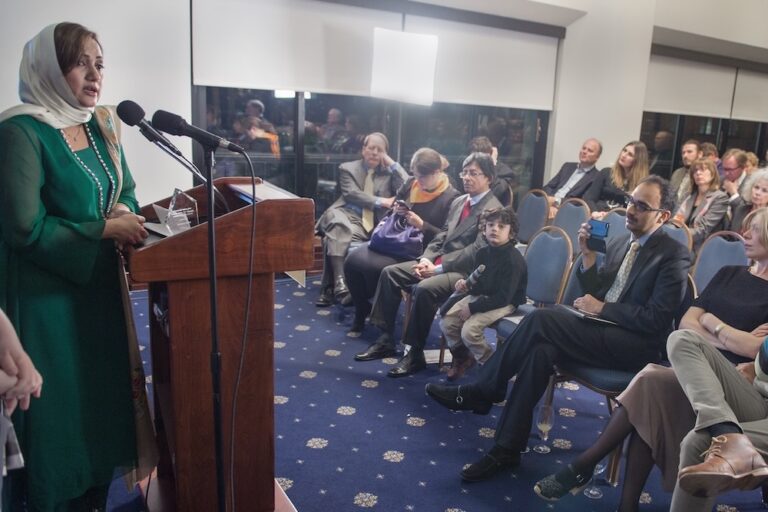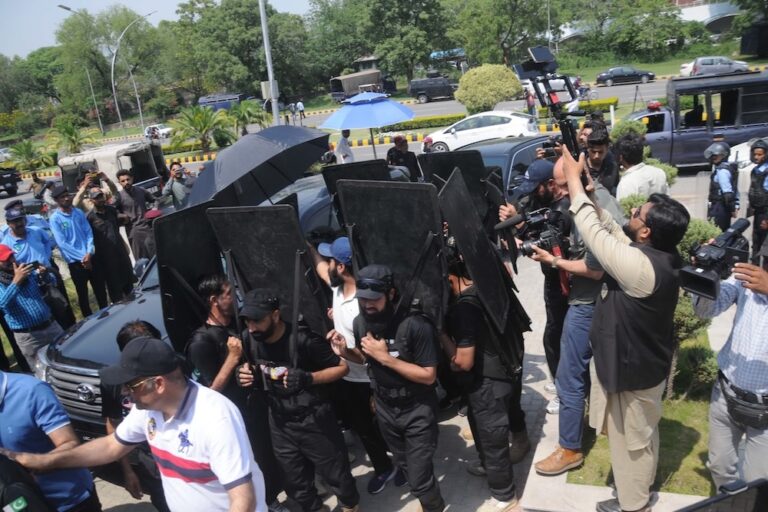(RSF/IFEX) – RSF has expressed concern over abuses during a massive security operation against Islamist extremist groups, including police action against several Karachi-based publications. The organisation stressed its strong condemnation of calls to violence and racial hatred pedalled by some Pakistani publications, but cautioned against misuse of anti-terror laws to imprison journalists critical of the […]
(RSF/IFEX) – RSF has expressed concern over abuses during a massive security operation against Islamist extremist groups, including police action against several Karachi-based publications.
The organisation stressed its strong condemnation of calls to violence and racial hatred pedalled by some Pakistani publications, but cautioned against misuse of anti-terror laws to imprison journalists critical of the government.
“The credibility of the anti-terrorist policy of President Pervez Musharraf will be judged by its ability to respect the law and not to make use of it to silence opponents,” RSF said.
On 19 July 2005, police in Sindh Province searched the offices of at least four Karachi-based publications, including the weeklies “Friday Special”, “Wajood” and “Ghazi”, as well as the daily “Ummat”.
At least two journalists are currently being held in police custody. Abdul Lateef Abu Shamil, associate editor of “Friday Special” (supplement of the Urdu-language daily “Jasarat”, close to the Jamaat-e-Islami fundamentalist party), was detained under Articles 153 (A) and 34 of the criminal code. Police are searching for the weekly’s editor. Mohammed Tahir, editor of “Wajood”, was also placed in custody until 2 August. Two of his colleagues, Ali Ataf and Zakirullah, have gone into hiding.
On 16 July, police arrested two managers of the extremist weekly “Zarab-e-Islam” in Karachi. They have been charged with “incitement to religious hatred”. Police also arrested the vendors of another radical weekly, “Zarb-e-Momin”, which has been banned. Both papers openly support Jihadist groups.
The Council of Pakistan Newspaper Editors (CPNE) has condemned the arrests and police searches, as has the Pakistan Federal Union of Journalists (PFUJ). “Why ban these publications now when they have been in existence for years?” the PFUJ asked.
These steps have been taken against the backdrop of a wave of arrests of militants throughout Pakistan. More than 200 people have been arrested and raids have been launched against scores of religious schools. In an address to the nation on 21 July, President Musharraf justified the sweep as essential to the fight against international terrorism. The head of state confirmed a ban on all “hate material,” including cassettes, publications and videos.


